This past week, I was invited to an Italian Wine Tasting Salon in Montreal. Although I attended, along with 200 or more wine fanatics, truth is I am rarely able to appreciate good wine. I can sort of tell when a cru is top notch, I enjoy a feeling of complexity in my mouth, but aromas remain unidentified. This is why.
Let me start (again) by saying that I am no medical expert. I am simply someone who 10 years ago lost her sense of smell, a condition called anosmia, then regained some of it back. It all started in my twenties and thirties, when I worked like crazy building a career with fifty-hour weeks the norm. Once a year, as my annual holiday loomed, I would start to relax and kaboom! stress left my body, long-denied viruses invaded, and I would come down with some type of breathing infection.
The 1st sign of trouble came during a trip to France. I travelled while still suffering from the usual pre-holiday cold, one so bad that I walked through Grasse’s perfume museum oblivious to the overwhelming fragrance that gave my travel companions a splitting headache. I did not entirely lose my sense of taste, strangely, but the only smell I could pick up all vacation long was the stink of diesel. In Europe, that’s no laughing matter.
Three years or so later, my Mom died from a heart attack. It was unexpected and rough, and I escaped the loneliness of that first Christmas without her by fleeing to France. In the days before leaving, my whole body shut down as usual. Against doctor’s advice and in emotional turmoil, I boarded the plane to Paris sick as a dog. By the time we landed, I couldn’t hear or smell. Not police cars zooming by with sirens blasting, not the poule au pot in one of the city’s best restaurants.
I eventually regained my hearing and some of my sense of smell, expecting the latter would heal fully over time if not during the trip. It never did. And I learned the high price that comes with the inability to smell.
Did you know? It is said that 2% of the population suffers from loss of smell, mostly as a result of aging. Like hearing or vision, the sense of smell becomes impaired as we grow older. There are dangers linked to severe loss: for example, you can’t tell if food is spoiled, or detect gas leaks or smoke from fire. Changes to sense of smell can also lead to digestive disorders, since aroma is what starts us salivating, thereby producing the digestive juices our stomach needs to assimilate food and build the immune system…
In my case, losing my sense of smell has meant that I never knew when my newborn’s diaper was full; that my cat had peed in its litter; that the garbage was stinking up the house; that food was burning on the stove; or that my deodorant was no longer working. It felt like living in a bubble.
I could tell that odours surround me, my nostrils felt positively strained by swirling aromas—but I was unable to identify them. The impact on quality of life is immeasurable. You see, smell and memories are linked in a very Proustian way. The delicate perfume of lilac on the breeze may remind you of your first, tender kiss. Walking into a warm stable can awaken souvenirs of how, as a kid, you would slumber in the hay with your horse (yes, I actually had a horse as a child). Apple pie baking in the oven may suddenly stir memories of your mom’s laughter after she is gone. Without the sense of smell, you lose the immediacy of memory, the instant and direct access that scents provide to a lifetime of pleasures, and sorrows too.
Losing my sense of smell has denied me the sweetness of burying my nose against my infant son to breathe in his baby smell. I still remember how much that made me want to cry as a new mom.
How did it happen?
You can lose your sense of smell for many reasons such as a head injury, because of a tumour or, in my case, as the result of multiple infections. It seems my olfactory epithelium — a “sponge” the size of a postage stamp at the top of my nose — dried up, making it largely unable to catch and identify scents, or send the information to my brain.
Doctors have put me on a regimen of K vitamin, nasal sprays and even medication that succeeded in temporarily bringing back my ability to smell—so much so that I was almost nauseous! But I reverted back to abnormal at the first sign of flu. I was told I could repeat the treatment but how long until the next cold? There’s also the side effects: I retained water until my hands would swell, my face became moon-like, and I was physiologically, painfully hungry 24/7.
As a food writer, losing part of my sense of smell is a bit of a professional challenge. Smell and taste are so intertwined that it is believed 90% of what we identify as taste is actually aroma. I DO taste, imperfectly. I feel the presence of ingredients but find it hard sometimes to tell thyme from rosemary. Let’s just say I will never switch mid-career to become a restaurant critic beyond saying whether or not I liked my dining experience as a whole. Subtlety is not my suit. Still, I have been relatively cold-free for the past two years and, wonder of wonders, my sense of smell shows signs of improvement. A nez I’ll never be but last spring, I could actually smell the lilac trees I had planted out of sheer denial six years ago…
All of which brings me back to the Italian Wine Tasting Salon. I loved the Moscato d’Asti (I could so taste the sugar) and a 2005 Barolo’s tannins seriously dried up my mouth. Everybody praised the Giglio, a wild varietal from Sicily that was so delicate I could barely taste it. I also met an Italian producer of organic wines who was trying to attract Canadian distributors. Not so easy, he shrugged, e’ la vita.
So here are some of the pictures. I’ll spare you the tasting notes…
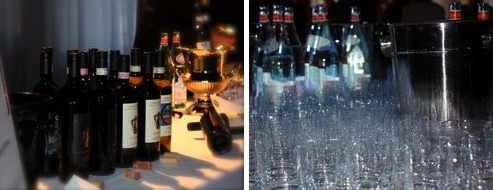
100 producers, 2 ballrooms, 200 or more attendants: this is a serious salon. When you register, a wine glass is provided for you to taste and keep. Basically, you walk up to any table, choose a wine and chat with the producer. Then you clean your glass by pouring in water, swirling it around, and throwing it into a waiting bucket. Clean glass in hand, you move to the next nectar. For obvious reasons, this was my first tasting salon. I was impressed.
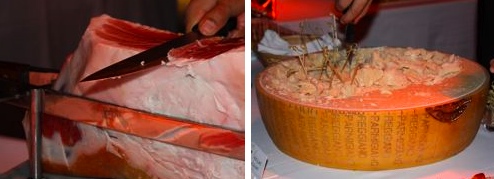
Parmesan wheel and whole prosciutto sliced to order: the usual suspects provided by one of Montreal’s best caterers, Denise Cornellier.
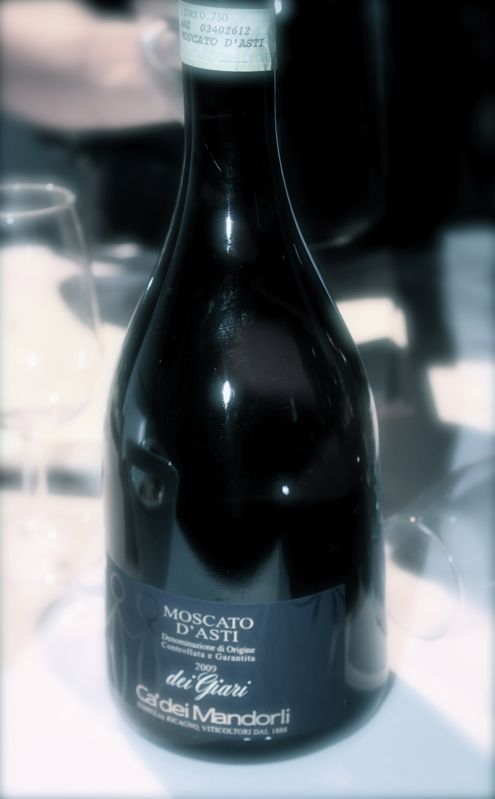
Moscato d’Asti, a lovely $23 dessert wine available by importation only, which means you probably have to buy a case of it. Presumably not one of the stars of the show, but hey, what I can say: Talk to the nose.
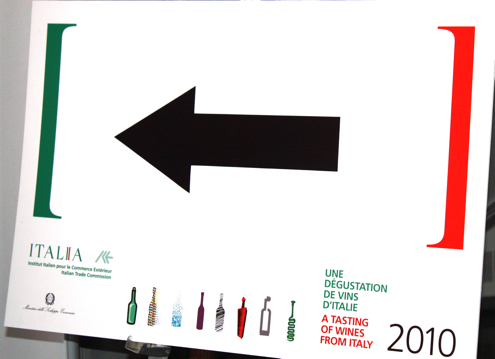

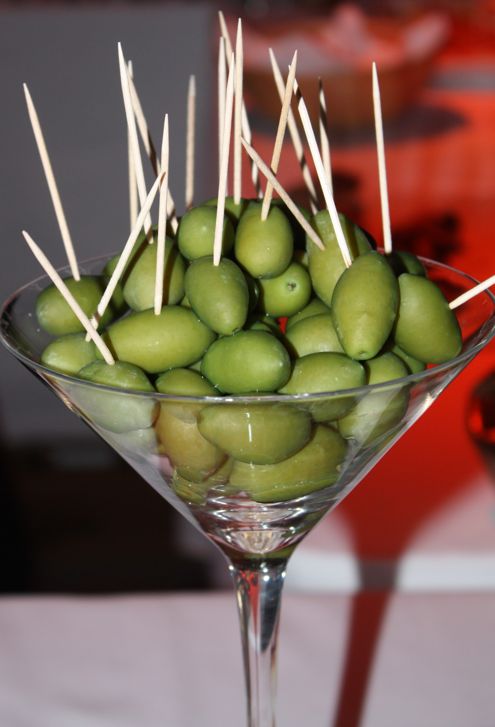
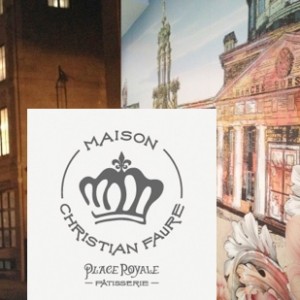

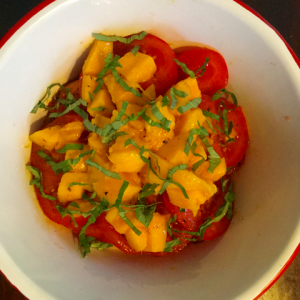







No comments yet.